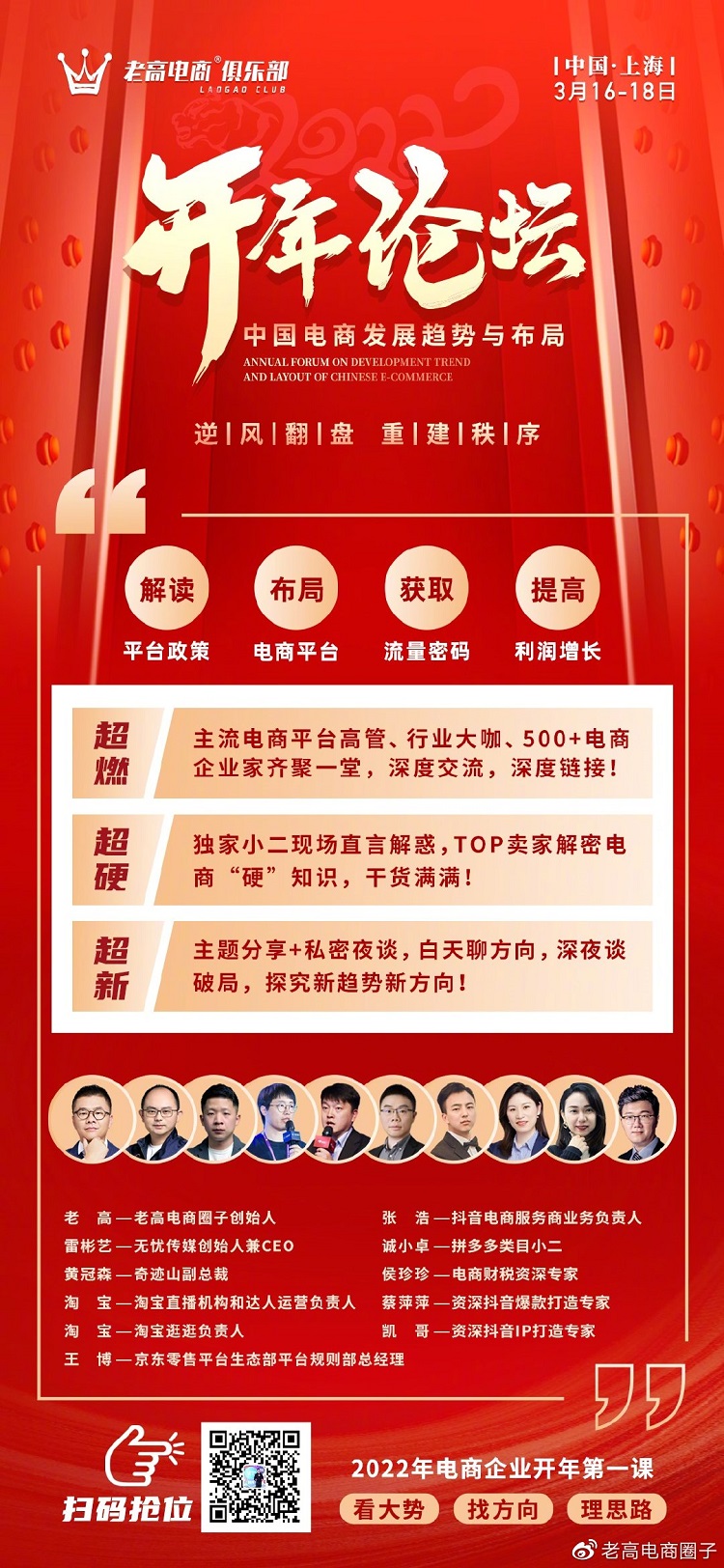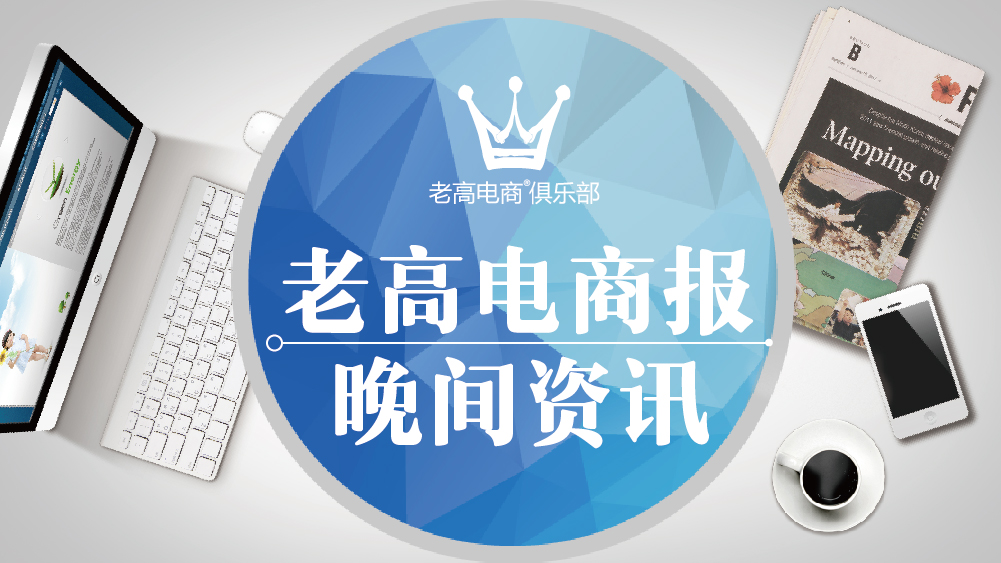As the beginning of spring 2022, the most exciting news about the e-commerce industry is the series of tax and fee reduction policies proposed by the Two Sessions.
On March 5, at the opening ceremony of the fifth session of the 3rd National People's Congress, the government work report mentioned that a number of new tax preferential policies aimed at reducing burdens and alleviating difficulties will be implemented in 2022, involving tax items, key industries, and forms of reduction and exemption. It is said that if the tax preferential policies are implemented smoothly, it will help enterprises save about 2.5 trillion yuan!
For e-commerce bosses, taxation has always been an indelible thorn in their hearts. In the past three to five years, the e-commerce industry has become more and more formal, and taxation has become more and more formal. Last year, many top anchors were blocked, and their business has been slumped since then because of taxes.
Since the Two Sessions have clearly put forward the proposal of tax cuts and fee reductions, e-commerce people must be very concerned about the preferential and favorable policies. Today, I will take a look at the favorable tax policies at the Two Sessions.
Policy 1: 5. Earn income tax for small and micro enterprises
The report of the Two Sessions will levy corporate income tax on the annual taxable income of small and micro enterprises by half.
It is understood that at present, the actual preferential tax rate for the annual taxable income of RMB 1 million to RMB 3 million is 10%. The two sessions proposed to reduce the levy by half, which means that the actual preferential tax rate for this part has been reduced to 5%.
This is great news for small and medium-sized enterprises, especially e-commerce companies that are afraid of taxes. If the annual taxable income of an e-commerce company is exactly 3 million, it can be divided into two parts, one is 1 million, and the base tax rate of 2.5% and the part is 2 million, and the 5% tax rate this time is enjoyed.
Then the actual tax amount paid in the end is only about 100,000. In the current global epidemic, only one domestic demand is left, and in the social environment of the entire economy, such a strong discount can be said to be the largest discount in history.
Policy 2: Value-added tax exemption for small and medium-sized enterprises
The report of the Two Sessions exempts small-scale taxpayers from phases of value-added tax, and continues to implement tax and fee reduction policies to support manufacturing, small and micro enterprises and individual industrial and commercial households, and increases the scope of reduction and expands the scope of application.
It is said that increasing the VAT exemption limit for small-scale taxpayers is one of the most anticipated tax preferential policies for this year's Two Sessions. There are speculations that the exemption limit this time may be increased to the upper limit of sales of small-scale taxpayers of RMB 5 million. If this is true, it is equivalent to the value-added tax exemption policy for small and medium-sized e-commerce companies with monthly sales of less than or equal to 400,000 yuan!
Some media have also made estimates for this "within a certain stage". According to the current situation, it is roughly 1-2 years , which means that by the end of 2023, small and medium-sized e-commerce companies can enjoy this policy benefits.
Policy 3: Large-scale tax refund for VAT retained tax
The report of the Two Sessions comprehensively considers providing cash flow support to enterprises, promoting consumer investment, and vigorously improving the value-added tax refund system. This year, large-scale tax refunds are implemented for the remaining tax refund. Give priority to small and micro enterprises, and the existing remaining tax credits for small and micro enterprises will be refunded in one lump sum before the end of June, and the incremental remaining tax credits will be refunded in full.
重点支持制造业,全面解决制造业、科研和技术服务、生态环保、电力燃气、交通运输等行业留抵退税问题。增值税留抵退税力度显著加大,以有力提振市场信心。预计全年退税减税约2.5万亿元,其中留抵退税约1.5万亿元,退税资金全部直达企业。
The value-added tax deduction is the balance of the enterprise's periodic VAT input tax deduction of the output tax, which is generally used for the next period of the output tax deduction. In the early years, most companies did not have a deposit, but in recent years, many companies have a deposit on their books.
This two sessions regard tax refunds as one of the policies to provide cash flow support for enterprises to alleviate the capital pressure caused by long-term value-added tax deposits.
Policy 4: Increase the additional deduction ratio of R&D expenses
The report of the Two Sessions increased the implementation of the additional deduction policy for R&D expenses, increased the additional deduction ratio for technology-based small and medium-sized enterprises from 75% to 100%, implemented tax incentives for enterprises to invest in basic research, and improved policies such as accelerated depreciation of equipment and equipment, income tax incentives for high-tech enterprises, which is equivalent to providing large-scale financial support for enterprise innovation.
This policy seems a bit far away for most e-commerce companies, but it is not. Many e-commerce companies, including merchants in the Laogao e-commerce circle, have their own supply chains, especially merchants with technical content, who will more or less apply for some patent certificates to ensure that their technical core is not infringed.
When such patents reach a certain quantity and quality, you can try to apply for the recognition of a "high-paying technology enterprise". Therefore, this is beneficial to many e-commerce people, after all, corporate income tax is not a small number.
Conclusion
As for the current economic environment, it is of great significance to continue to implement preferential policies for tax and fee reduction. It can be said that the positive fiscal policy of tax and fee reduction is the most direct, fair, inclusive and effective way to withstand the downward pressure on the economy.
As industry insiders said, tax cuts and fee reductions can not only reduce the production and operation costs of enterprises, but also allow enterprises to invest more in technology upgrades, production capacity upgrades and expansion of reproduction. At the same time, it can also improve the independent innovation capabilities of enterprises and enhance the core competitiveness of enterprises.
Since the tax trend in 2022 has already existed, what should companies do specifically? From March 16 to 17, the annual regular meeting of Laogao E-commerce Club "China's E-commerce Development Trends and Layouts", invited E-commerce Enterprise Finance and Taxation Management Expert, Director of the E-commerce Finance and Taxation Teaching and Research Office, and the National Registered Tax Instrument, to provide in-depth explanations on the characteristics of the tax smart audit system in 2022 and the key points of self-inspection of tax risks before the annual liquidation of the income tax, to help e-commerce bosses prepare for the future and plan the tax in 2022.





![#Laogao E-commerce Newsletter# [E-commerce Morning News on July 19]](/update/1519779573l517616211.jpg)
![#Laogao E-commerce Newsletter# [E-commerce Morning News on July 21]](/update/1634606324l419797086.jpg)

 EN
EN CN
CN
